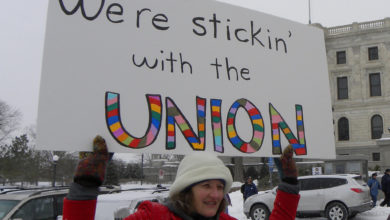The United States and Britain ranked at the bottom of a Feb. 14 United Nations Children’s Fund report evaluating the well-being of children in industrialized countries.
UNICEF found that both the United States and Britain do not adequately provide for their countries’ children when
|
The categories used to determine a country’s ability to provide for its youth included material well-being, health and safety, education, peer and family relationships, behaviors and risks and young people’s own subjective sense of well-being.
The United States ranked last among the 21 nations surveyed for health and safety, which is measured by rates of infant mortality, low birth weight, immunization and deaths from accidents and injuries. It was in the bottom three for all six categories.
Britain was last in the family and peer relationships ranking, which measured such things as the rate of single-parent families and whether families ate the main meal of the day together more than once a week.
Britain also finished at the bottom in behaviors and risks, which considered factors such as the percentage of children who ate breakfast, consumed fruit regularly, were overweight, used drugs or alcohol or were sexually active.
The United States was second from the bottom in both of those categories.
How can it be that the lives of children are so bad in the richest countries in the world?
The United States and Britain are both powerful countries with highly developed industrial and productive capacities. The laws of capitalism govern in both.
Under the capitalist system, children are nothing more than commodities. Their usefulness is to grow into workers and then breed more generations of workers to profit the tiny capitalist class of bankers, financers and corporate owners.
The UNICEF report underlines this reality. It also debunks the myth that the accumulation of profits in the hands of the few can benefit society as a whole.
Since the UNICEF report surfaced, officials in the United States and Britain have tried to brush off the results. While some have pledged to address its findings, others have dismissed the statistics upon which it was based as “too old” or “outdated.” None have addressed the root cause fueling the report’s findings.
The authors of the UNICEF report assured that they used the most up-to-date information to assess “whether children feel loved, cherished, special and supported, within the family and community and whether the family and community are being supported in this task by public policy and resources.”
Professor Jonathan Bradshaw from York University, one of the report’s authors stated, “In a society which is very unequal, with high levels of poverty, it leads on to what children think about themselves and their lives. That’s really what’s at the heart of this.”
 |
Children should be a top priority of any country—children ensure the ability of countries and humanity to exist in the future.
Under capitalism, government resources are directed toward serving the ruling capitalist class first—to feed their need for more profits—and to human needs second, if at all. Instead of putting money into social services and ensuring the development of children, the two most powerful imperialist nations direct the lion’s share of their national wealth toward war, colonial occupation and rapacious militarism.
The crimes of capitalism against children affect all working-class people. Struggling for a better world, one free of exploitation and oppression, is the way toward increasing the well-being of children.







